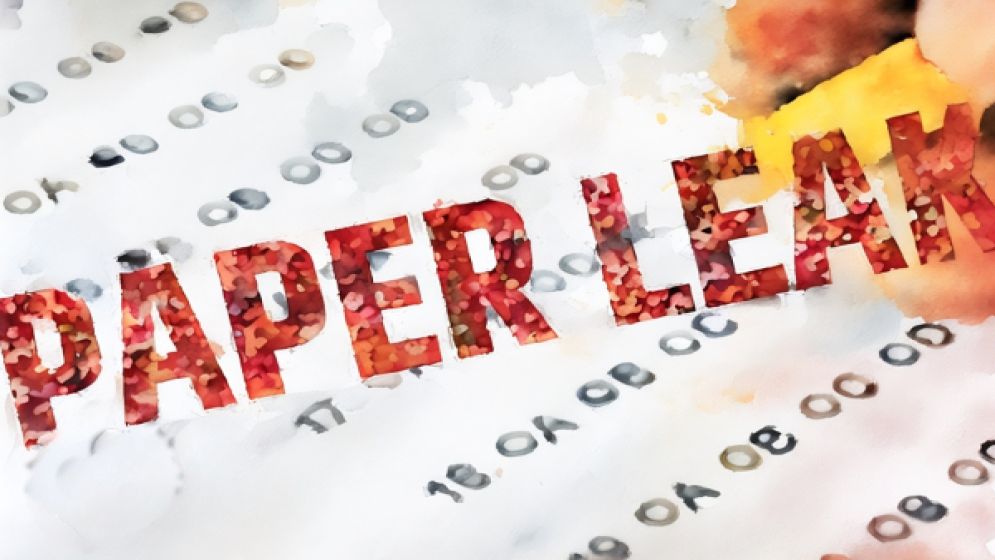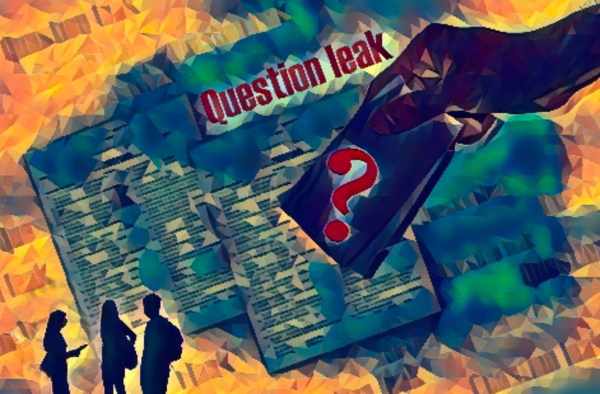Public service exam leaks: Will the masterminds ever face justice?

For years, the issue of PSC question paper leaks has been met with superficial actions, limited to arresting a few perpetrators.
However, after thirty incidents and a decade, law enforcement agencies appear to be conducting a comprehensive investigation to uncover the full extent of the network involved.
The CID has revealed the involvement of a syndicate of PSC officials and employees in leaking questions for at least thirty recruitment tests.
Based on confessions, investigators have identified at least twenty-four officials currently working in various government departments who were part of the racket.
This suggests that high-ranking individuals may be implicated in this widespread corruption.
While the disclosure of those involved in the PSC question paper leak is a positive step, previous investigations give cause for concern that high-ranking individuals may escape accountability.
Despite past arrests by the CID, the main network, operating since 2002, remained undetected.
This raises questions about how substantial financial transactions by syndicate members went unnoticed and why previously arrested individuals involved in similar leaks faced no significant consequences.
The lack of repercussions also raises suspicions of potential cover-ups involving law enforcement.
Far-reaching consequences
The persistent issue of question paper leaks in Bangladesh has far-reaching consequences.
Public service examinations in Bangladesh, including the BCS exams, are crucial for aspiring government employees due to their competitiveness and perceived prestige.
Now, this issue of repeated question paper leaks has seriously undermined the integrity of these exams. Leaks create an unfair advantage for those with illicit access, compromising the selection process and favoring individuals who may not be the most qualified candidates.
A perceived leniency in the law regarding punishment for perpetrators is believed to be a contributing factor to the increase in these incidents.
The current law, the Bangladesh Public Examination Act, 1992, imposes a maximum sentence of four years imprisonment, a decrease from the previous ten-year maximum under the 1980 Act.
Civil society members argue that this reduction encourages such activities.
Furthermore, the slow progress in prosecuting those involved in question paper leaks further hinders efforts to resolve this issue.
We have to understand that the immediate fallout of question paper leaks is obviously the erosion of trust in the examination system.
When candidates and the public lose faith in the fairness of the process, it lowers morale and discourages qualified individuals from participating.
This lack of trust has long-term consequences, potentially leading to a decline in the quality of public administration, as positions may be filled by those lacking the necessary skills and ethical standards.
Moreover, the implications go beyond individual careers. When government positions are occupied by individuals who cheated, it fosters inefficiency, corruption, and poor governance.

Damaging messages to future
generation
There is no doubt that when those entrusted with upholding academic integrity are implicated in cheating, it sends a damaging message to future generations.
Students resorting to buying exam papers reflects the desperation to secure admission, further exacerbated by a struggling public education system.
The ease with which students pass exams using leaked questions however highlights a fundamental flaw in public examinations.
If these exams genuinely assessed critical thinking, relying on memorization wouldn't be sufficient.
Question paper leaks obviously disadvantage bright students, particularly those lacking access to alternatives like studying abroad, leading to a decline in the overall caliber of future professionals.
The demographic dividend presents a unique opportunity for Bangladesh, yet the widespread practice of memorizing leaked answers from an early age fosters a toxic culture of cheating.
The message ingrained in students is that hard work yields no rewards,further eroding faith in the education system. The frequency of leaks and the heavy-handed response to student protests only deepen this distrust.
Why can't leaks be averted?
Given that social media is the primary platform for sharing leaked exam materials, it's perplexing why online monitoring isn't being strengthened.
Existing laws, such as the ICT Act, are geared towards surveillance, yet those responsible for leaking questions remain at large.
This raises questions about the priorities of online enforcement, seemingly focused on policing offensive speech rather than investigating these prevalent crimes.
The absence of a mechanism to detect and address question paper leaks online is also baffling, especially considering their frequency.
Recent protests by students and teachers have intensified scrutiny of the education system, with government employees consistently implicated.
TIB's assertion that leaks necessitate collaboration from public officials remains unchallenged, yet the Education Ministry's denial and lack of proactive measures are concerning. While exposing these rackets is crucial, it only scratches the surface of a much deeper issue.
It is true that reforming Bangladesh's public examination system is a daunting task, but the Education Ministry can learn from globally recognized standardized tests.
Higher authorities must acknowledge the inadequacy of the current system. Eradicating criminal activity alone is insufficient; a comprehensive overhaul of the public examination system is necessary.
Besides, utilizing advanced technologies like encryption, blockchain, and biometric authentication can significantly mitigate the risk of leaks.
But, most importantly, tackling systemic corruption within examination and administrative bodies is essential to put an end to question leak.
This requires not only harsh penalties for those involved in leaks but also proactive measures to ensure transparency and accountability throughout the examination process.
—-
Harun
Ur Rashid is a journalist and researcher

